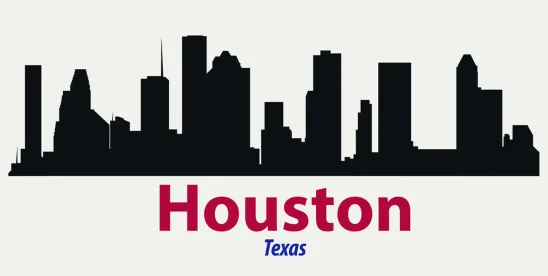Houston, Texas, is a powerhouse of industrial distribution, boasting one of the most dynamic logistics and transportation infrastructures in the United States. The city’s strategic location, access to global markets, and robust regulatory framework make it a critical hub for businesses involved in trade, shipping, and industrial operations. As the Port of Houston, extensive rail networks, and inland logistics infrastructure continue to fuel economic growth, the region presents unparalleled opportunities for developers, investors, and businesses seeking to optimize their supply chains and expand market reach.
However, Houston’s unique characteristics—marked by rapid growth, a diverse logistics ecosystem, and the absence of traditional zoning laws—also pose distinct legal challenges. Navigating this evolving landscape requires a comprehensive understanding of the city’s regulatory environment, environmental compliance requirements, and the increasingly complex negotiations surrounding land transactions and leases.
Notably, as land scarcity intensifies and transaction volume begins to moderate, legal practitioners have observed a significant increase in the length and complexity of negotiations. With greater competition for prime sites and heightened regulatory scrutiny, meticulous legal planning has become more essential than ever for achieving sustained success in Houston’s dynamic industrial market.
Current Market Trends and Legal Impacts
Shifting Construction Dynamics
The recent surge in industrial construction has given way to a more balanced market. Reports from industry sources indicate a slowdown in new project starts. This shift is prompting more detailed negotiations around project timelines, self-help rights, and liquidated damages provisions, particularly as developers and tenants seek to mitigate risks associated with supply chain disruptions. Force majeure clauses and escalation provisions have also taken on heightened importance as parties attempt to allocate risks arising from unforeseen delays. Careful drafting and negotiation of these provisions are critical to avoiding disputes and preserving project viability.
Port of Houston: A Hub of Opportunity and Regulatory Complexity
The ongoing expansion of the Port of Houston continues to fuel demand for logistics hubs and intermodal facilities. As one of the busiest ports in the United States, the Port handled a record‑breaking 53.07 million tons of cargo in 2024, a 6% increase over 2023. Its diverse cargo mix—including bulk commodities, breakbulk, and containerized goods—gives Houston a competitive edge over ports like Los Angeles, which primarily handle containerized shipments.
However, port-related development requires navigating a complex web of environmental regulations, including wetlands protections, air quality standards, and stormwater management requirements. Developers must engage experienced legal counsel to ensure compliance and mitigate potential liabilities.
E-Commerce and Last-Mile Logistics: Urban Planning Considerations
The rise of e-commerce continues to drive demand for last-mile distribution centers, particularly in densely populated urban areas. However, the siting of these facilities presents unique legal challenges. Local ordinances, traffic flow considerations, and community impact assessments all play a crucial role in project feasibility.
Compared to markets like Los Angeles and Chicago, Houston benefits from fewer regulatory constraints and lower development costs. However, developers must conduct thorough due diligence to secure necessary permits and address potential community opposition.
Vacancy Rates and Lease Agreements: The Art of Negotiation
Houston’s industrial sector experienced a continued decrease in overall vacancy rates in Q4 2024, falling to 5.6%. This tightening market is reshaping lease negotiations, with landlords seeking longer lease terms, higher rents, and more stringent indemnity provisions. At the same time, tenants are pushing for greater flexibility through termination rights, rent abatement clauses, and detailed service level agreements.
As land becomes more scarce, parties are also placing greater emphasis on access easements, shared infrastructure agreements, and self-help provisions—further contributing to the increasing length and complexity of negotiations.
Investment Sales: The Importance of Comprehensive Due Diligence
Despite market fluctuations, industrial property sales remain a significant component of Houston’s real estate market. However, in a shifting economic climate, thorough due diligence is more critical than ever. Title examinations, environmental assessments, and reviews of existing encumbrances are essential to identifying potential legal risks.
With competition intensifying for prime sites near logistics hubs, investors are spending more time negotiating detailed representations, warranties, and indemnity provisions—adding further complexity to transaction timelines.
Legal Considerations in Houston’s Industrial Development
Navigating Houston’s industrial real estate landscape requires a keen understanding of the city’s unique regulatory environment.
Absence of Traditional Zoning Laws
Houston distinguishes itself from other major markets by operating without traditional zoning laws. Instead, development is governed by a combination of subdivision regulations, deed restrictions, and local ordinances. This unique framework requires developers to take a more proactive approach to site selection, easement negotiation, and community engagement.
Environmental and Community Considerations
Environmental considerations remain paramount, particularly for projects near the Port of Houston or in environmentally sensitive areas. Recent disputes underscore the importance of thorough environmental compliance and community engagement. Developers must work closely with legal counsel to obtain necessary permits, mitigate community concerns, and ensure compliance with federal and state environmental regulations.
Permitting Process
The Houston Permitting Center oversees commercial plan reviews and permitting processes for new industrial developments. Developers must navigate these processes carefully to avoid delays and ensure projects comply with applicable building codes and safety standards.
Proactive Strategies for Sustained Success
To effectively navigate Houston’s evolving industrial and logistics landscape, developers and investors should adopt the following strategies:
Engage Experienced Legal Counsel
Collaborating with legal professionals who understand Houston’s unique regulatory environment is essential to navigating permitting processes, negotiating contracts, and ensuring compliance.
Conduct Comprehensive Due Diligence
Thorough investigations of potential development sites, including title examinations, environmental assessments, and existing encumbrances, can help preempt future challenges.
Prioritize Environmental Compliance
Engaging environmental experts and legal counsel early in the development process can mitigate legal risks and foster positive community relations.
Leverage Economic Incentives
Houston offers various economic incentives, including tax abatements and grants, to attract industrial development. Legal counsel can assist in identifying and securing these incentives.
Conclusion
Houston’s industrial and logistics market presents unparalleled opportunities for developers, investors, and businesses seeking to optimize supply chains and expand market reach. However, as land becomes more scarce and regulatory scrutiny intensifies, legal negotiations have grown increasingly complex.
By proactively addressing zoning, environmental, and contractual considerations—and engaging experienced legal counsel—stakeholders can position themselves for sustained success in this dynamic market.




 />i
/>i

